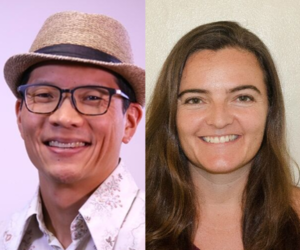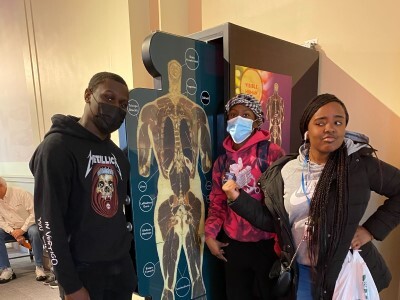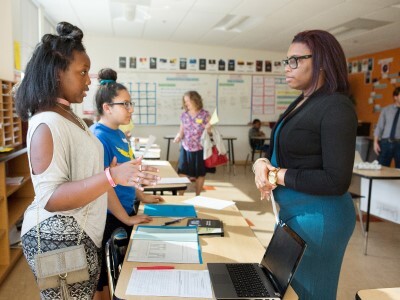Reimagining Assessment
Student Research Takes a Hopeful Turn in Oakland Unified
Topics
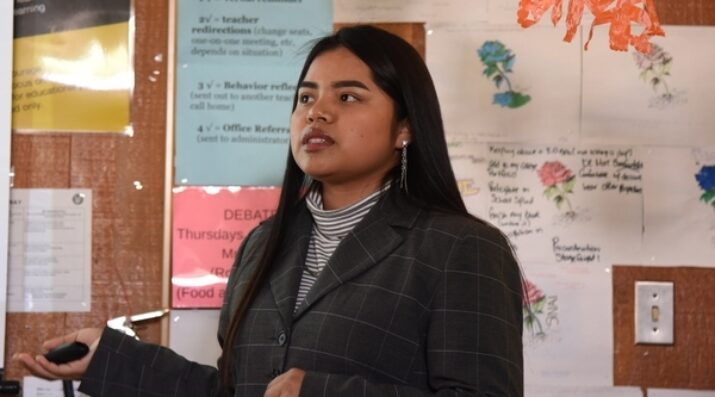
Educators are rethinking the purposes, forms, and nature of assessment. Beyond testing mastery of traditional content knowledge—an essential task, but not nearly sufficient—educators are designing assessment for learning as an integral part of the learning process.
When Oakland Unified School District began emphasizing solutions in its Graduate Capstone research projects, students became more hopeful than stressed and began taking action on issues close to them.
Each spring, senior students from MetWest High School present their Graduate Capstone projects. On the surface, these presentations appear the same as the thousands of presentations that happen in the spring of the senior year across high schools in Oakland Unified School District (OUSD). But there is one important difference. In addition to a research paper, MetWest students also present solutions they create to address the issue they researched.
One MetWest senior, Eldin Silahic, led his peers through a five-session computer literacy class and worked with community partner Tech Exchange to donate laptops to students who completed the series. His project was building off his research on the gaping digital divide that separates poor families of color from their wealthier, white counterparts.
Projects like Eldin’s inspired a shift in thinking at OUSD—from investigating problems to enacting solutions—that we are promoting through the Graduate Capstone project. In the past, capstone research papers have focused on societal problems like homelessness, domestic violence, and depression. Now, we are asking teachers to start with the problem but focus on the hope and promise of possible solutions.
So, what’s the problem with spending a year researching problems?
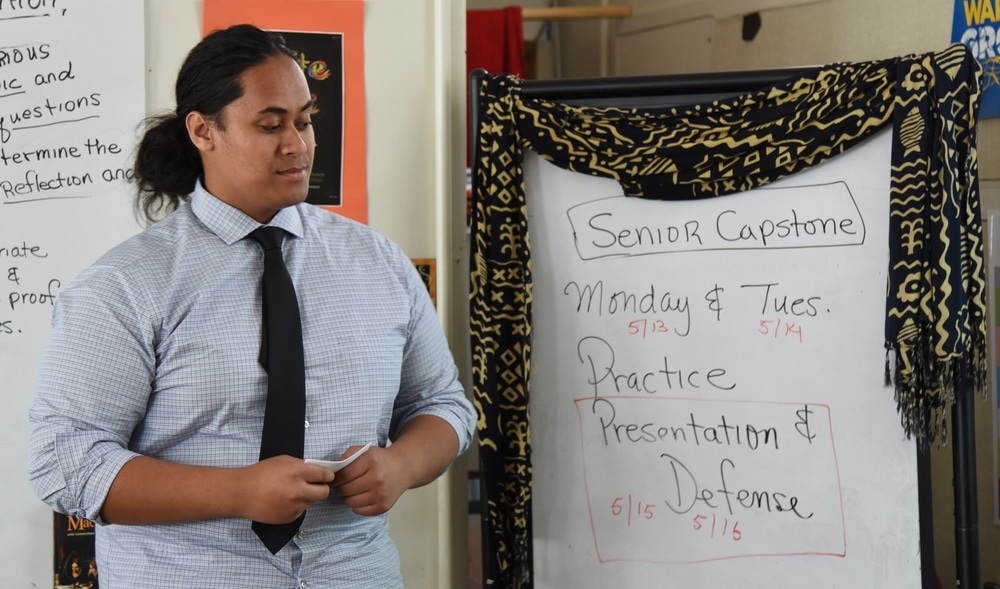
A senior at Ralph J. Bunche Academy presents his Graduate Capstone in 2019. (Courtesy of Young Whan Choi)
Learning is supposed to be academically challenging, but for many seniors, their research topic was also emotionally stressing. The proximity of an issue to their lives could make a topic both compelling and overwhelming. Students who had seen family members deported were researching immigration policy. Students who had lost friends or family to gun violence were researching gangs.
Not to mention, it was their senior year of high school—a time of great stress because of the impending unknown. Seniors are worried about life after high school: how will relationships change, will they get a job, will college be a worthwhile investment, etc. For many OUSD students who are first in their families to go to college, it’s a particularly stressful time. Add a yearlong research paper on a personally impactful topic to that mix, and it could be a volatile concoction.
We found that by the end of the year students had little to say about how to address these problems. “That wasn’t the focus of my research” was a common refrain whenever a panelist asked a student to offer some possible solutions to topics like food deserts in low-income communities, addiction to social media, or climate change’s impact on low-lying islands. We began to ask ourselves if we were doing a disservice by focusing so much on teaching students to analyze the problems in society.
So, what’s the solution?
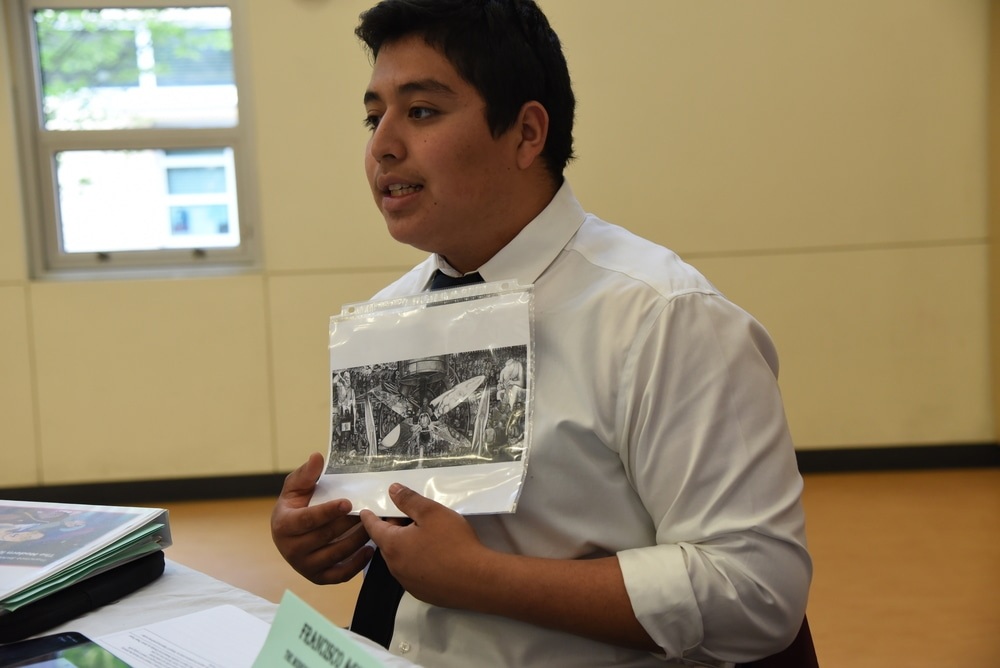
MetWest High School senior Francisco Perez presents his Graduate Capstone in 2019. (Courtesy of Young Whan Choi)
This year in OUSD, we are promoting solution-oriented research papers. The Graduate Capstone project still starts in the same place; students research the problem. But that research becomes the context for the meatier section of their research paper, which centers on promising solutions.
Delving into solutions is, by nature, wading into the unknown. We don’t have consensus on what to do about issues like childhood obesity. Do we tax sugary beverages? Or do we educate children and their families through public ad campaigns? Or do we increase cooking and gardening classes in schools? When students research solutions, they are engaging in authentic questions that the field is still unclear about.
By contrast, the cause of the problems that students study is often well-explored in the research literature. We know that sugar and processed food consumption as well as a sedentary lifestyle are leading causes of obesity among children.
Another benefit of researching potential solutions is that it naturally tees up the student to do an action project. Instead of the emotional strain of researching a problem close to their lived experience, investigating solutions primes students with hope and possibility. The natural next step is to be a part of the solution.
In OUSD, nearly all 10th-12th grade students are enrolled in a Linked Learning pathway, which among other things means that they take three years of career technical education (CTE) classes.
Previously, students would complete CTE courses, but that coursework was divorced from the capstone research paper. In this way, we were continuing to message that college preparation (i.e., academic research) was separate from career preparation. The reality of work in the 21st century is that academic skills like critical thinking are an integral part of nearly all careers.
The move toward solution-oriented research better facilitates a marriage of college and career preparation. Furthermore, because the action projects address a community need, we are able to merge college, career, and community preparation in one culminating project in OUSD.
In Eldin’s final project, he demonstrated preparation for college through a rigorous academic research paper, preparation for career through his professional exhibition and collaboration with Tech Exchange, and preparation for community by addressing the need among his peer group for both computer literacy and access to computers. We look forward to seeing more solution-oriented capstone projects like this in OUSD.
Photo at top, courtesy of Young Whan Choi: A Fremont High School senior presents her Graduate Capstone in 2019.

